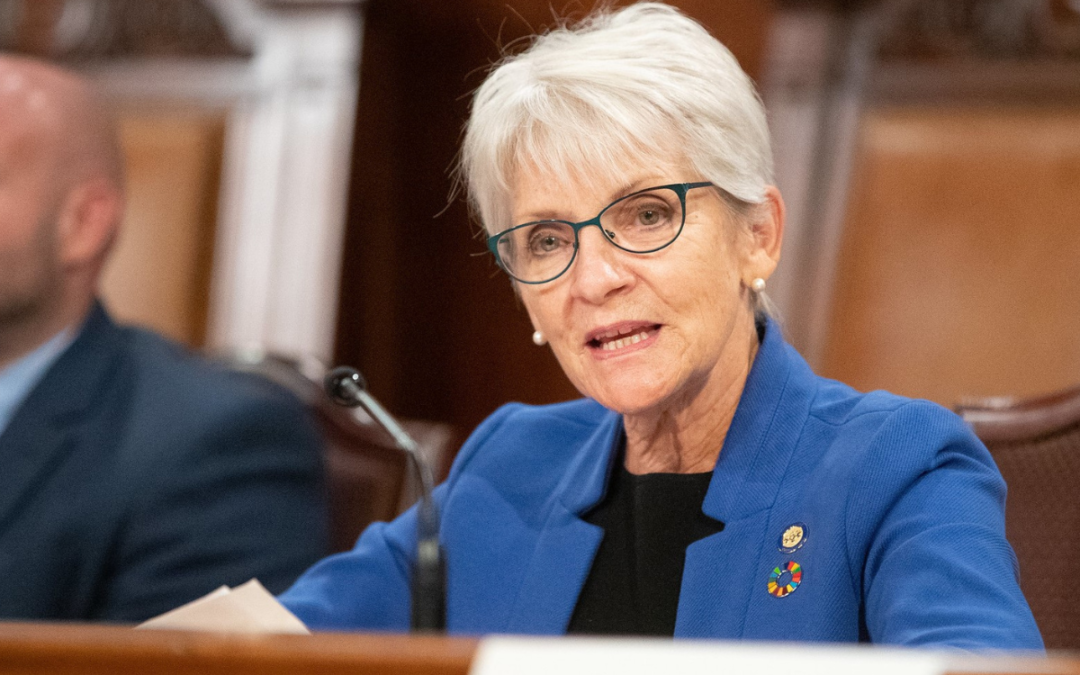Harrisburg, Pa (March 20, 2024) – Pennsylvania will establish its own cap-and-trade program to reduce harmful emissions, lower consumers’ electric bills, and create clean energy jobs under legislation introduced today by state Senator Carolyn Comitta and state Rep. Aerion Abney.
The Pennsylvania Climate Emission Reduction (PACER) Program, a key part of Governor Shapiro’s Energy Strategy, calls for the Commonwealth to establish a Pennsylvania-specific price on carbon emissions and require large emitters to pay their fair share. The proceeds would be invested in utility rebates and projects that create jobs in clean energy and cut air pollution.
If passed by the legislature, in its first five years, PACER is projected to save ratepayers an estimated $252 million, create nearly 15,000 energy jobs, and generate $5.1 billion in investment in clean, reliable energy sources.
“We must act now to reduce our carbon emissions for this generation and the next one,” Comitta, who serves as minority chair of the Senate Environmental Resources and Energy Committee said. “And with PACER, we can do it while supporting job growth, transitioning to clean energy, and saving consumers money on their electricity bills. We all have a role to play in addressing climate change and this legislation benefits every family in every community across the Commonwealth.”
“PACER is a bold vision that allows Pennsylvania to reimagine a climate future that benefits all residents and protects our environment. This legislation would provide a much-needed bridge to a more renewable future, foster economic growth, and move us closer towards environmental justice,” said state Rep. Aerion Abney.
Under PACER, the Pennsylvania Department of Environmental Protection will calculate a Pennsylvania-specific cap on carbon emissions and hold our own independent PACER credit auctions. The proceeds will be invested as follows:
- 70 percent returned directly to electricity consumers, including those in rural areas, as an across-the-board, on-bill rebate by the Public Utility Commission (PUC). This reflects the proceeds expected to come from Pennsylvania electricity customers.
- 30 percent to support energy efficiency projects that reduce air pollution in Pennsylvania, invest in new job-creating clean energy projects, and support low-income energy consumers with their energy bills through a year-round LIHEAP program. Of that project funding, 40 percent will be dedicated to directly benefit Environmental Justice communities.
PACER is an alternative to the Regional Greenhouse Gas Initiative (RGGI), a carbon cap-and-invest program currently made up of eleven Northeast and Mid-Atlantic states. Pennsylvania was set to begin participating in the program two years ago but it is entangled in an ongoing legal battle. If passed, PACER would take Pennsylvania out of RGGI.

